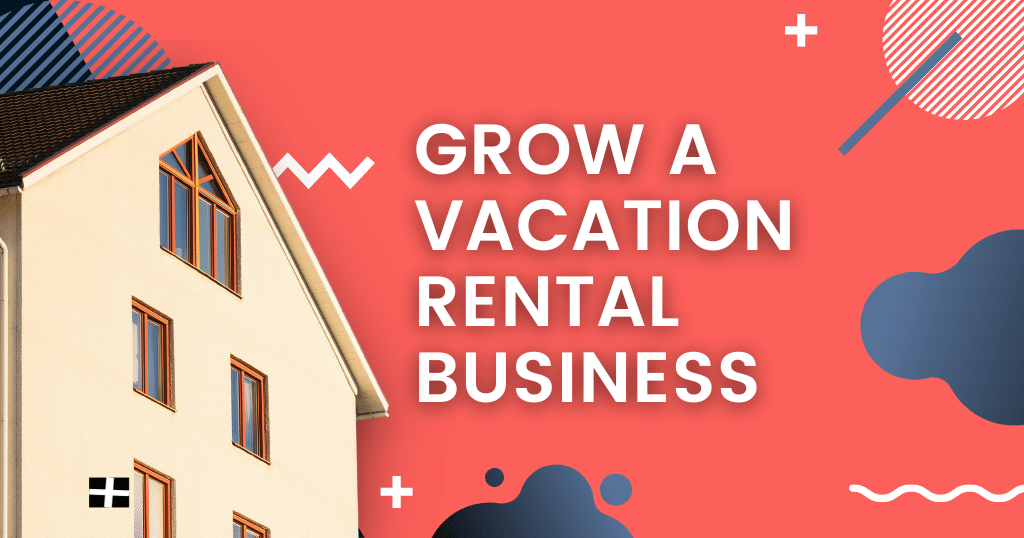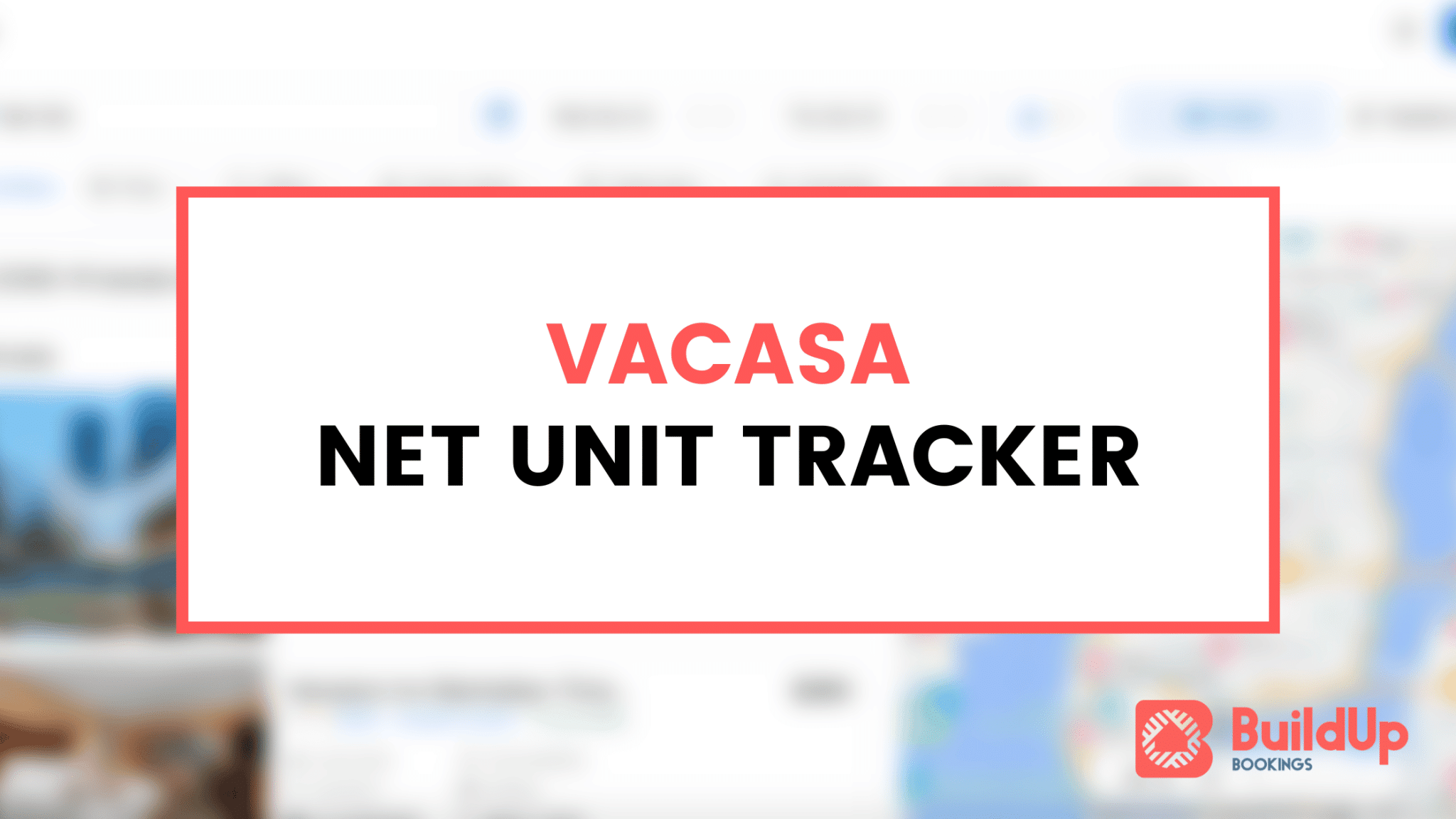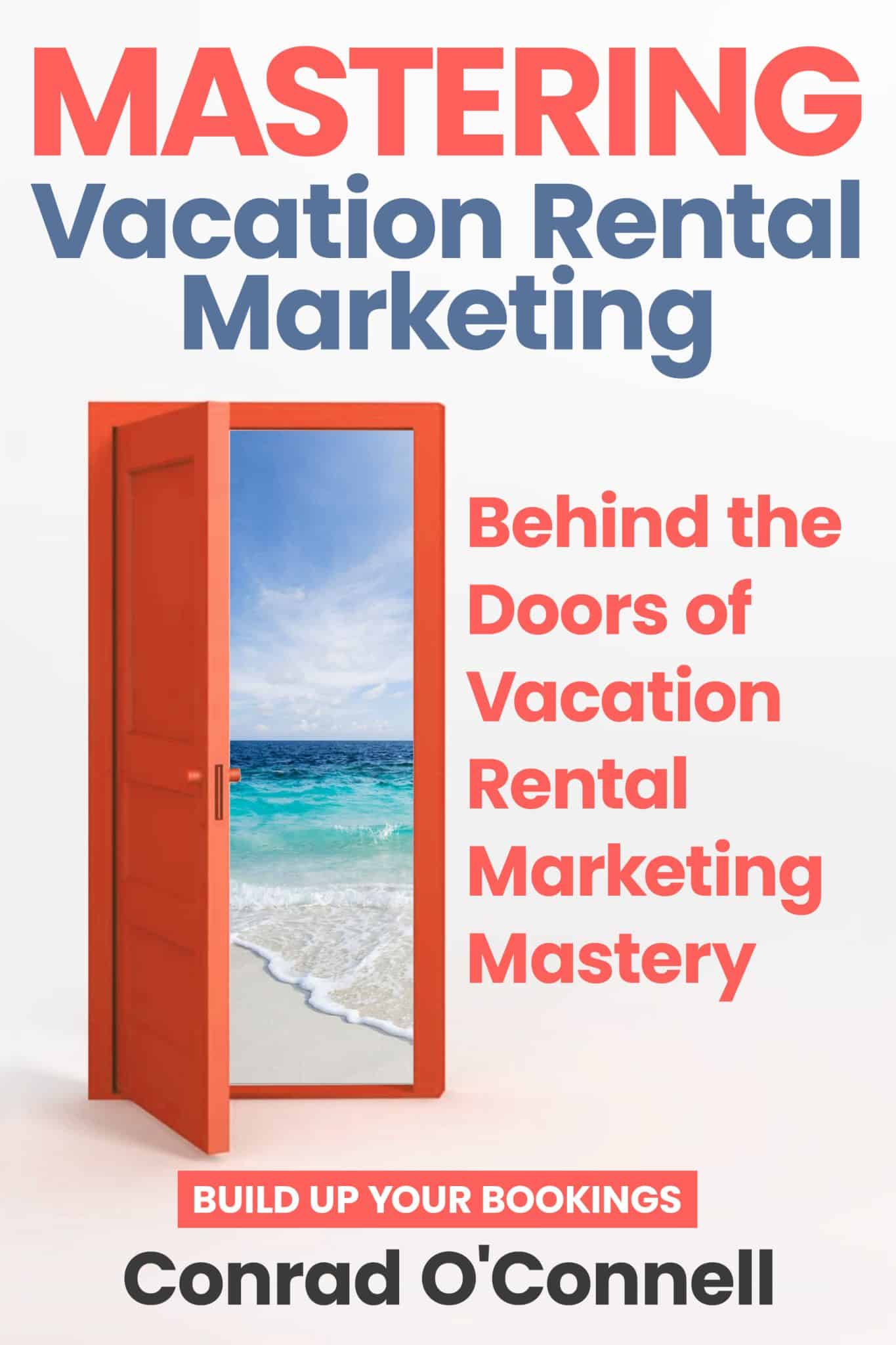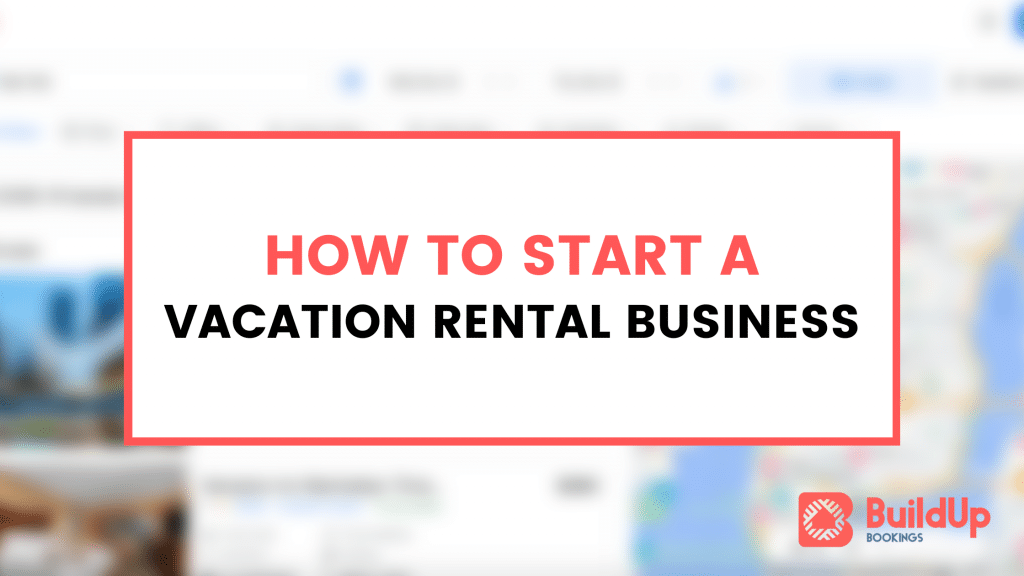
After a bumpy 2020, the vacation rental industry is growing. The projected compound annual growth rate (CAGR) for short-term rentals ranges from 3.4% to 7.2%, and several sources say this will be a 100+ billion dollar industry within the next 3-5 years.
Looking to get your slice of the pie? Read on for a primer on the first steps to building a successful vacation rental business.
The Basics: Business Structure, Registration & Licensing

Create a business plan. Setting a foundation for your business right out of the gate helps to clarify where you’re headed and help you get there. A solid business plan will include your financial and personal goals, projected income and ROI based on data in your location (AirDNA is one place to start collecting that data) and a marketing plan for your rental(s) detailing how are where you will market—listing sites, your own website, social media, etc.
If you’re aiming to be a property manager (with or without properties of your own), also consider the profile of your target property owner as well as your ideal guest. Bonus: creating a business plan can help with financing and investors, too.
Set up an LLC for your property. Do this early! The LLC will protect you against legal liability and should be in place from day one. Your attorney or accountant can direct you to the appropriate resources for doing so.
Look into licensing and occupancy taxes. Depending on your area, you may need to get the appropriate licenses and permits for vacation and short-term rentals. Some places require occupancy taxes, so dig into that, as well It’ll give you a more accurate financial picture before you start thinking about your nightly pricing.
Check for anti-short term rental legislation. In some places, short-term rentals are heavily restricted or even banned. In others, persistent legislation seeks to make a dent in the industry, with new anti-STR bills cropping up every year. Do your research beforehand so you don’t start building your empire in a place where short-term rentals are in jeopardy.
Also check to see if short-term rental advocacy groups exist in your area, and consider joining to keep up to date on the specifics of legislation, taxation, permits, and other issues that apply specifically to your home turf.
Gaining Inventory & Vacation Rental Properties
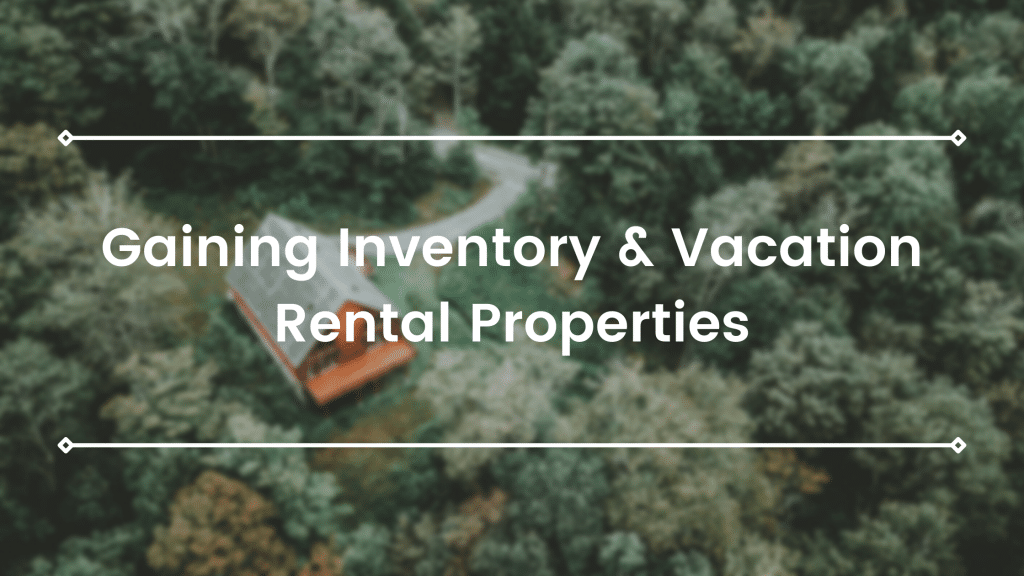
If you start with just a single property listing, that’s great. Some of the biggest and most successful property managers we know started with just one rental, and before they knew it, they’d built a successful, scaled business.
How do you gain inventory? There are a few ways.
- Buy more properties. Some property managers choose to own all of their inventory. This allows for greater control, larger profits and equity. Of course, it also entails all of the liability, so make sure you have great insurance (really, great insurance is a must no matter what… but even more so when you own the inventory).
- Manage more properties for others. In our experience, if your first listings start performing well, overwhelmed property owners will find you. In some areas, legacy property managers are the only option for owners… and sometimes a newcomer can bring a fresh perspective that’s sorely needed. If you’re in a more competitive area, you can also put together marketing collateral that outlines your successes, and of course, you’ll want to make sure you show up in Google search results for “property manager in [destination].”
- Master leases/rental arbitrage. In this scenario, you take out a long-term lease on a property and rent it out on a short-term basis. Essentially, this option is like a sublet. This option works when you’re low on capital to start, but know that you have the chops to create a successful business. Of course, you’ll have to get permission from the long-term lessor. One way to pitch it is that short-term rentals will be exceptionally well taken care of, because the success of your business depends on them being in good shape.
Property Setup & Accepting The First Booking
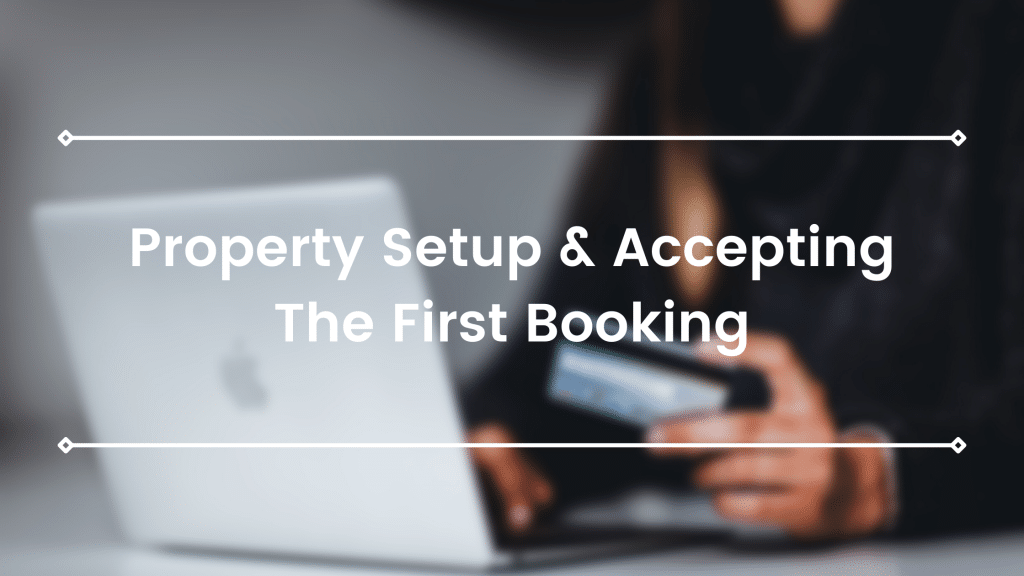
Decide where to list and market your property. Airbnb, Vrbo, Furnished Finder, and your own website are a few places to start. From there, get professional photos, consider professional copy for your listing, determine your pricing, create a booking form, and hit the ground running.
Stage the property. There’s much to be said here! For help in this area, we recommend The Distinguished Guest. They offer detailed blog posts (free!) as well as course in setting up and designing your rental(s) to be inviting to guests. The devil is in the details, as they say!
Make it safe and user-friendly. Before you open your doors, be sure you’ve installed all the proper safety features, like: digital door locks (these also makes your life easier), Ring alarms, Nest thermostat, carbon monoxide detectors, fire extinguishers, etc. New technology crops up all the time to make your rental operation more streamlined for you and better for guests. We love Rentals United’s Vacation Rental Technology Guide for a primer on the latest and greatest.
Inspect the properties and onboard. Once you’re complete with all of your tests, it’s probably worth getting a detailed rental inspection from a friend or family member. Porch.com suggests that catching any rental property problem or red flag early can help save you from future issues once guests start to book your property.
Pricing Vacation Rentals Properly To Earn More Per Booking
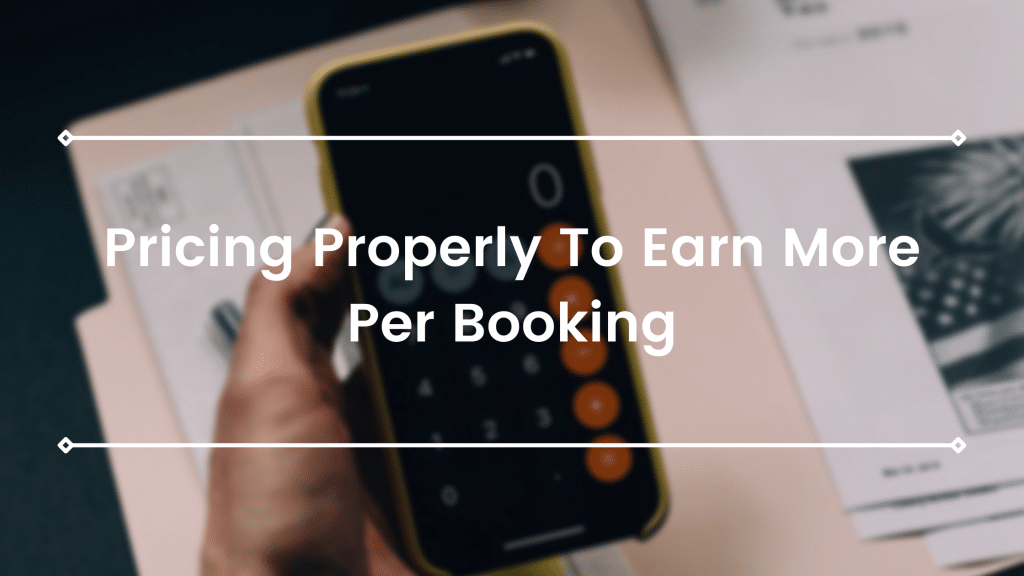
Check out the comps. Most new owners and managers price their rentals by seeking out comparable rentals—similar size, amenities, max occupancy, neighborhood, etc.—and base their rates on those comps. This is a solid way to get your baseline. But do keep in mind any contingencies, additional amenities you offer, and operating costs. Are you pet-friendly? Do you have amenities they don’t, like a hot tub? Did you drop big bucks on luxury mattresses or other interior design?
Offer a discounted rate when you’re first getting started. Without reviews or other “social proof,” guests may be hesitant to book your rental when you first open your doors. We recommend going about 10-20% lower than your target nightly rate to start. If you prefer not to do this, you can consider offering free stays to friends or family who can leave you your first reviews.
Then find your sweet spot. On the flip side, as you get more established, you want to evolve to find the “sweet spot” for your rates—not too high that you lose guests, not too low that you miss our on potential revenue. Software tools like Beyond Pricing, Price Labs, and Wheelhouse are all good, data-driven ways to start finding the right price over time.
When demand is high, raise your rates! Consider popular local events, holidays, and other market-drivers (like post-pandemic travel booms!) and raise your rates accordingly. When demand is low, you don’t necessarily need to slash your rates right away. First see what marketing endeavors you can try. If that doesn’t help, it’s good to know when to drop rates—even temporarily—to keep your business humming.
Marketing To Earn More Bookings, Reviews & Increase Occupancy

Once again, this is a topic that could be an entire blog post—if not an entire book. But here’s a basic outline of the marketing avenues you’ll want to explore for getting the word out.
Start by listing with the Big Guns. The general advice for new vacation rental owners and managers is to first list your properties on established listing sites/OTAs like Airbnb, Vrbo, Booking.com, etc. These platforms have done a lot of heavy lifting as far as marketing and search placement, and they have name recognition with the crop of travelers who are just trying vacation rentals for the first time. This makes them a great place to test the waters and see if vacation renting is for you. The downside, of course, is that these platforms have to take their cut of the profit (and sometimes all the credit, too) and they have a say in many aspects of how you run your business.
Then start looking to your “Book Direct” future. In the industry, we use “Book Direct” as shorthand for the move toward encouraging renters to book on a property owner/manager’s website, rather than through the large platforms listed above. Guests save on booking/traveler fees when they book direct, and the advantages for you is even more apparent. In short, when you control the booking, you control all aspects of that booking—cancellation policies, how much you charge (and how much you net from the transaction), what software you use to manage your reservations, etc.
It requires some work—and probably an initial upfront investment in your website and software—but most industry professionals agree that having a way to take bookings outside of the OTAs/listing sites is an essential ingredient to your business’s sustainability. As the pandemic showed us, even billion-dollar companies are not immune to shake-ups, and you never know when they may disappear altogether… taking your business down with them.
Next, build traffic. Once you have the infrastructure set up to take bookings on your own website, your next step is to get as many eyeballs on it as possible. Search engine optimization (SEO), pay-per-click marketing (PPC) and garnering a following on social media are all ways to help travelers find you (and trust you enough to book with you directly).
Property Management Requirements To Grow

If you have your eye on establishing a property management business (rather than just a property or two that you own and manage), you will have a different set of challenges, expectations, and paths to growth. Here are a few things to know.
Driving leads is the way to grow. Earlier in this post, we discussed the three main ways property management companies onboard more homes: buying them, attracting homeowners in need of a manager, and rental arbitrage. If you want to manage for others, you need to drive leads from homeowners. This can be done via word of mouth (as we said, if you’re a good manager, homeowners will find you) through real estate agents, or even other local business owners.
It’s a balancing act. Property management is all about balancing growth, owner expectations and guest satisfaction—all while dealing with both national and local competition. It’s tough! Sometimes what the guests seek out in their short-term rental is not the homeowners’ preference for their second home. To be a successful property manager, you must clearly communicate with your homeowners.
Scaling is a challenge, too. As you grow, you’ll find the process of scaling elements like guest service, marketing, bookings management, cleanings, and software can be a roadblocks to your success. Overcoming these roadblocks takes a combination of careful decision-making (don’t scale too much too fast!), smart hiring, and tech tools that are designed to help you streamline.
Good luck on the journey!
